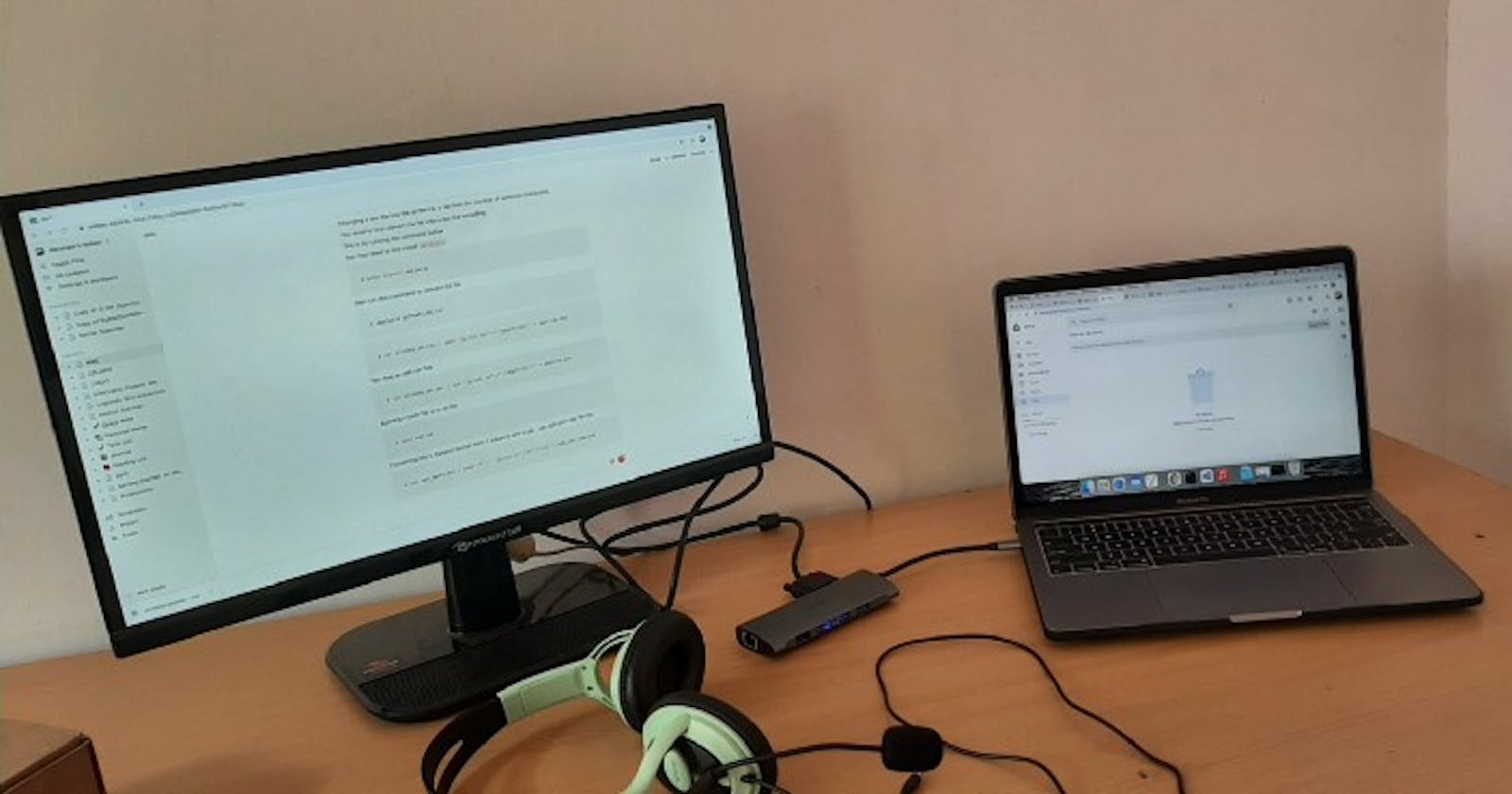Remote work setup
I had always heard of this term and never experienced the ins and outs of how one can collaborate and work for someone literrally miles away or rather more than 8 hours behind their current time zone. Today am going to share with you some things I have learnt while navigating this journey of a software developer. I can say one of the hardest tasks is to find a remote job, simply because there is a lot of complexity around. Most companies do not want to get involved due to the complex tax issues lingering, the issue of how they can send to you money, and the fact that they have to entrust their security or entire platforms to someone they simply have not meet physically let alone never travelled to those countries. One thing is that as an individual looking for a remote role, you should not be afraid to volunteer or rather just give yourself a chance to work for even a very small token of appreciation. This mainly helps the companies that are your future employers learn about the work arounds on how they can possibly handle the taxation issues on either their end or on your end. For most of these, they will be contract positions just to have little friction along the taxation. Later on as you grow , you can show your real value and bid on the current skillset level. Having had the chance to navigate around the payment options, I realised sometimes it is necessary for the company to know about your previous competencies in similar remote work positions before they can offer you the position. Normally this helps them especially as startups ask for how you and your previous or current remote work company are running various tasks and ensuring maximum value for their pay. Also, considering the fact that the only way they can gauge whether you are actually working or not is through constant communication, you need to be good at this . Various communication and meeting tools have been able to gain popularity after the pandemic and these include but are not limited to Zoom, Slack, Discord, Element, Gitter among others. Alot of engineering teams are thriving on these platforms and have had even a chance to host get together team activities such as game nights or movie nights remotely.
The other quite overlooked but vital element of remote work is having a good internet setup and well functioning computer. You do not want to be hardly heard within crucial team meeting and sound as if you are working from a battle field. Always have a backup internet setup for downtimes of your primary internet connection and ensure it is as reliable as your primary internet connection.
Last but not least is be aware of scammers. There are a-lot of people who masquerade on the internet as possible employers but are rather conn-men. One rule of thumb I normally use is , if it comes easy, it is not worth it. Avoid sharing any sensitive information such as credit card bank details on sites you are sure are not authentic and have been sent to you by a potential employer to fill in before you get a job contract. It is very likely that these are masking up just to collect all your bank information and drain your account of your hard earned money. Also keep aside like 3 to 4 bank accounts if possible and use one for testing out and never to keep your entire savings but as a channel to receive international payments . The moment the money arrives here, transfer it to another account, this keeps you safe and future proof incase the details get leaked you could block the account and notify all your employers a change of bank details to another secondary account.
I also strongly encourage everyone especially those working remotely within Africa to hold a dollar account. Here, you will have the exact wire transfer money reflect on your account considering most international firms pay you in dollars. I noticed this with the pretty ugly rates banks in Uganda offer and the only way to overcome this was withdrawing my money within the transaction currency then having it locally exchanged with local forex traders that normally have better exchange rates.
I really hope that this insight is helpful to the next person out there who wishes to have a similar chance at taking on a remote job.
